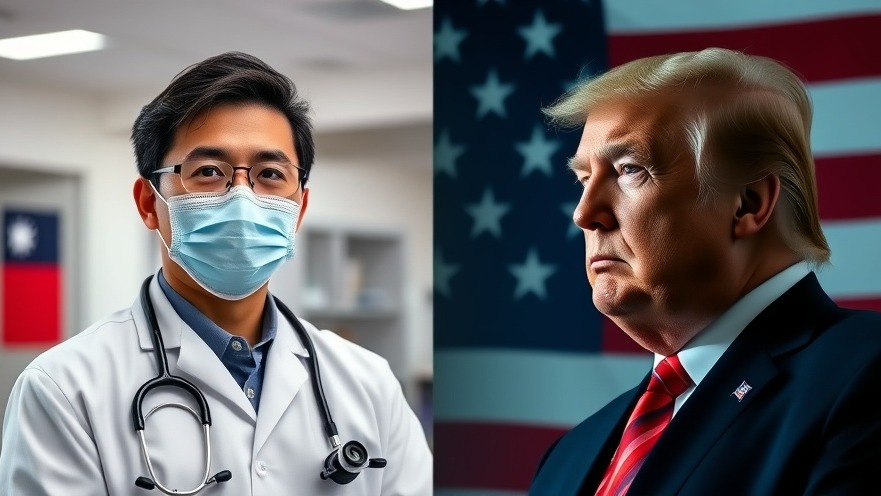
Trump's Health and Its Implications for Leadership
President Donald Trump's declaration of being 'fully fit' to serve, as revealed through his recent physical exam, offers more than just a glimpse into his personal health; it opens a dialogue about the standards we hold our leaders to in terms of health and fitness. The medical summary indicates improvements in critical health metrics, from weight loss to enhanced cognitive function. At 78, Trump’s journey from 244 to 224 pounds, moving him out of the obesity category, resonates with the broader narrative of health consciousness as a vital component of effective leadership.
What the U.S. Can Learn from Taiwan’s Health System
As Trump’s exam raises questions about health standards in leadership, a stark comparison can be made with Taiwan's healthcare model, which provides vital lessons for the U.S. Taiwan's national health insurance system covers almost all residents and is lauded for its affordability, efficiency, and high satisfaction rates. The Commonwealth Fund highlights Taiwan's ability to control costs and ensure equitable access, achieving a life expectancy nearly two years higher than that of the U.S. This presents an opportunity for U.S. policymakers to consider a shift toward a more centralized approach, contrasting sharply with the current fragmented U.S. system.
Rethinking Gun Violence Prevention During Peak Incidents
Amidst the healthcare discourse, another pressing issue arises: firearm injuries in the U.S., which are notably more prevalent during nights, weekends, and holidays. A recent CDC study reveals that spikes in firearm injuries occur consistently around 2:30 AM and during major holidays like the Fourth of July and New Year's Eve. For medical practice owners, this data not only underscores the urgency of developing responsive systems to tackle firearm violence but also highlights a unique opportunity to create preventive interventions during high-risk periods.
Business Implications: Understanding Healthcare Costs
For concierge medical practices, understanding and adapting to the nuances of healthcare costs is critical. The contrast between the U.S. and Taiwan’s healthcare expenses offers a valuable lens through which practice owners can evaluate their operating models. With Taiwan’s spending less than half that of the U.S. relative to GDP, exploring ways to engage patients effectively while minimizing overhead could foster better satisfaction and business sustainability.
Actionable Insights for Practice Owners
How can concierge practices capitalize on these insights? Integrating preventative healthcare initiatives that mirror Taiwan’s model could enhance patient engagement and retention. Moreover, establishing strategic partnerships with organizations focused on violence prevention may strengthen community ties and create a safer environment for practices. Implementing data-driven strategies based on firearm injury statistics can inform staffing and emergency preparedness, potentially increasing patient trust and loyalty.
Increasing Awareness and Patient Education
By spreading awareness about the specific timeframes for firearm injuries, concierge medical practices can play a pivotal role in patient education and community health. Providing actionable tips for prevention, awareness campaigns, or even collaborative events with local health agencies could position practices as thought leaders in public health.
Ultimately, staying informed about health trends, both for personal wellness and broader public health implications, is essential for every medical practice owner. As we navigate through lessons from leaders like Trump, the health system structures of countries like Taiwan, and the societal challenges of firearm injuries, it's vital to consider how these insights can bolster your practice's success.
In closing, optimizing your practice is not just about financial metrics; it’s about fostering a healthier community and ensuring your role as a leading healthcare provider in your area.
 Add Row
Add Row  Add
Add 






Write A Comment